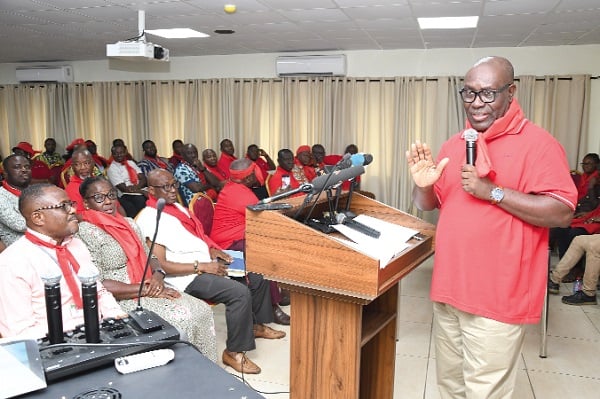Organised Labour has officially announced the suspension of its planned nationwide strike, which was aimed for October 10. This decision comes in response to the Ghanaian government’s newly implemented measures against illegal mining, popularly referred to as “galamsey.” These measures highlight a commitment to collaborative efforts, particularly involving the military-led ‘Operation Halt.’ This initiative, directed by the Ghana Armed Forces (GAF), seeks to tackle the prevalent activities associated with illegal mining, a practice that has been detrimental to the country’s environmental landscape and resources. Given the urgency of addressing the environmental degradation that accompanies galamsey, the government is taking decisive steps to regulate this sector.
A significant aspect of the government’s strategy includes working closely with small-scale miners to promote responsible mining practices. This cooperative stance aims to align the interests of small-scale operators with environmental sustainability efforts. The government recognizes that by engaging these miners, it can foster a more constructive approach to mining that mitigates harm to the environment while potentially allowing for lawful operations to continue. The emphasis is on finding a balance between economic interests and ecological preservation, reflecting the complexities involved in addressing illegal mining.
In its communication, particularly in a statement from the Ministry of Information on October 9, the Ghanaian government underscored the importance of prioritizing legal mining operations as part of the fight against galamsey. The statement reiterated that river bodies and forest reserves are designated as “red zones,” emphasizing the government’s unwavering commitment to combat illegal small-scale mining activities. This classification of zones serves as a clear delineation of areas where illegal activities will be strictly monitored and discouraged. Overall, the government’s stance demonstrates a robust approach towards the preservation of its natural resources, which have been significantly threatened due to galamsey practices.
The fight against illegal mining has emerged as an acute priority for the Ghanaian authorities, as the environmental and economic repercussions of galamsey have been far-reaching. Illegal mining operations often lead to the degradation of land, pollution of water sources, and loss of biodiversity, which in turn affects local communities that rely on these resources for their livelihoods. Therefore, the government’s action plan not only addresses environmental concerns but also aims to safeguard the economic well-being of communities impacted by these destructive practices.
Through initiatives like Operation Halt, the government has taken a direct approach to tackling illegal mining activities. The involvement of the Ghana Armed Forces reflects the seriousness of the situation, as military support can provide the required resources and oversight for effective enforcement. By declaring river bodies and forest reserves as protected areas, the government aims to send a clear message regarding the unacceptable nature of illegal mining. It encourages stakeholders, including local communities and small-scale miners, to collaborate in these efforts against galamsey, ultimately fostering a collective responsibility toward protecting Ghana’s natural environment.
In conclusion, the suspension of the planned strike by Organised Labour signals a significant moment of cooperation between the government and various stakeholders in the mining sector. As efforts intensify to combat illegal mining and promote responsible practices, the focus remains on safeguarding the environment from devastating consequences. The government’s dedication to enhancing the regulatory framework surrounding mining activities opens up possibilities for sustainable economic growth that aligns with ecological conservation. By addressing illegal mining head-on and involving affected communities in the solution process, the government seeks to build a resilient future for both the economy and the environment in Ghana.














